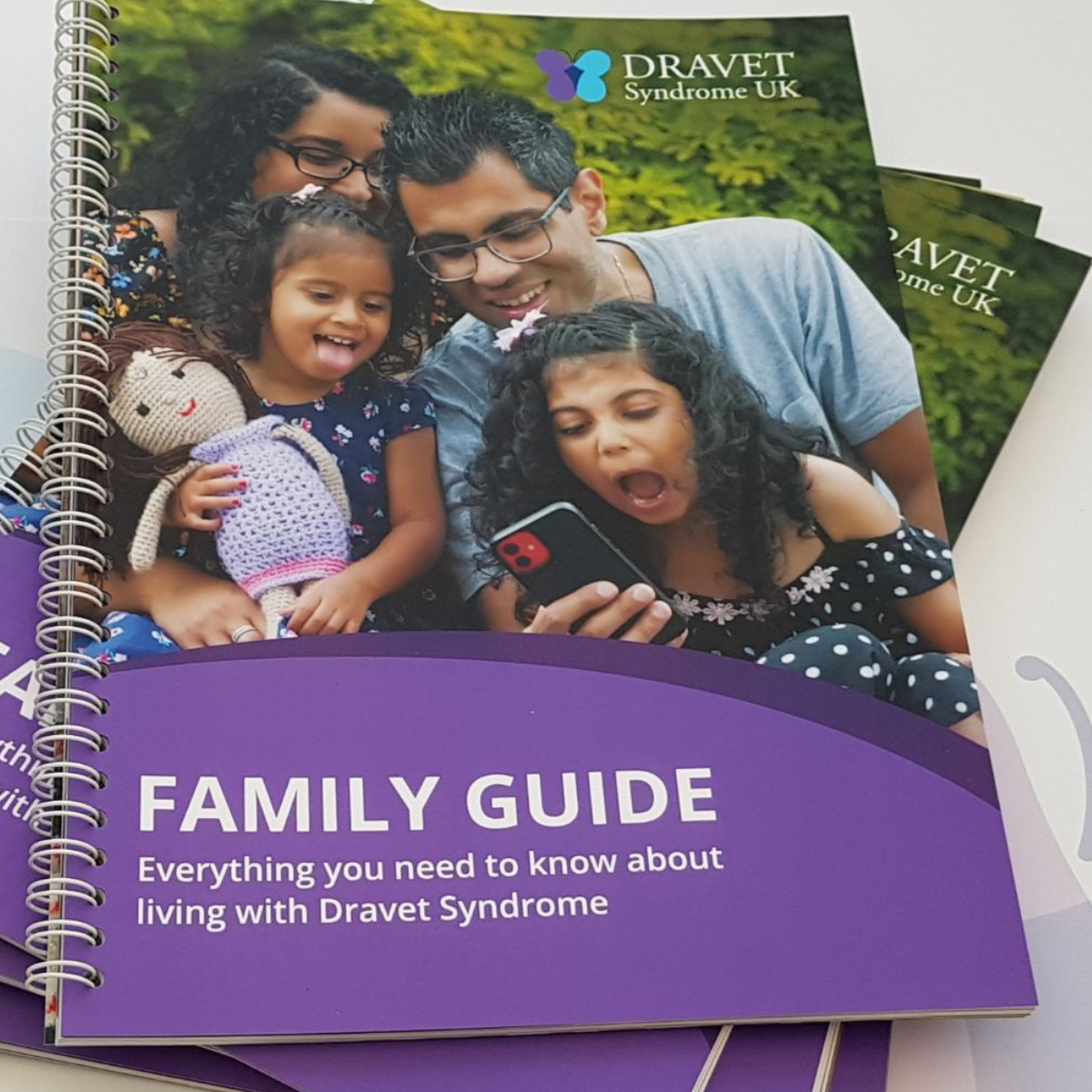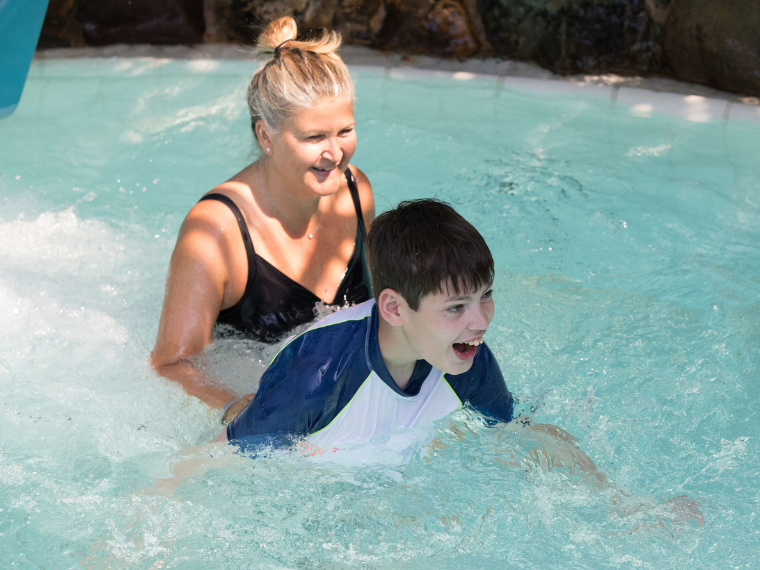
Dravet Syndrome UK Family Guide
Download our essential guide to living with Dravet Syndrome for parents and carers.
Many additional therapies are available locally on the NHS to help someone living with Dravet Syndrome. But some parents/carers supplement NHS care with private therapy, especially if a particular alternative therapy is not available on the NHS.
To access additional therapies on the NHS, you can ask for a referral from your GP, consultant or epilepsy nurse, or contact your local service directly.
Additional therapies include:
Starting therapies as early as possible is important to maintain or improve someone’s skills and abilities.
For children with Dravet Syndrome, a paediatric occupational therapist can help:
Occupational therapy can also benefit adults with Dravet Syndrome. It can help with:
Speech and language therapists can:
Physiotherapy is often ongoing for someone living with Dravet Syndrome. It can:
Play therapy can:

Download our essential guide to living with Dravet Syndrome for parents and carers.

Learn about this medically prescribed diet that can help some people with Dravet Syndrome.

Discover how getting a device surgically implanted into the chest of someone living with Dravet Syndrome can help to reduce their seizures.